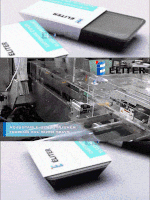Aluminum Foil Trays vs. Paper Trays: The Ultimate Showdown
2024-02-13
In the world of catering, takeout, and home baking, the debate between using aluminium foil trays and paper trays is as heated as a preheated oven. Both have their champions and detractors, swearing by one over the other for a myriad of reasons. Let’s unwrap this debate, shall we?
The Contenders: Aluminium Foil Trays
Aluminium Foil Trays are the stalwarts of the kitchen. Known for their durability and heat conductivity, these trays have been the go-to choice for chefs and home cooks alike.
Pros:
- Heat Conductivity: Aluminium distributes heat uniformly, ensuring your food is cooked evenly.
- Durability: These trays can withstand high temperatures, making them suitable for baking, roasting, and even grilling.
- Reusability: With proper care, aluminium trays can be washed and reused multiple times.
- Recyclability: Aluminium is infinitely recyclable, contributing to environmental sustainability.
Cons:
- Cost: They are generally more expensive than paper trays.
- Reactivity: Certain acidic foods can react with aluminium, altering the flavor and color of your dish.
- Environmental Concerns: While recyclable, the production of aluminium is energy-intensive.
The Challengers: Paper Trays
Paper Trays have surged in popularity, thanks to their eco-friendly appeal and convenience.
Pros:
- Eco-Friendly: Many paper trays are made from recycled materials and are biodegradable or compostable.
- Versatility: With advancements in paper technology, some paper trays are now suitable for a range of temperatures and food types.
- Lightweight: Easy to transport, making them ideal for picnics and outdoor events.
- Safety: No risk of altering food taste or color since they don’t react with acidic foods.
Cons:
- Durability: Not as heat resistant as aluminium and can become soggy with very wet ingredients.
- Limited Reusability: Paper trays are often single-use, which can contribute to waste.
The Eco-Impact Rumble
One of the most significant battlegrounds in this debate is the environmental impact. Aluminium trays, while recyclable, require a lot of energy to produce. However, their recallability can offset the initial environmental cost over time. On the flip side, paper trays, especially those made from recycled materials, boast a lower initial environmental footprint. Yet, if not properly disposed of, they can contribute to deforestation and landfill waste.
The Health and Safety Arena
When it comes to health and safety, both trays have their merits. Aluminium trays’ heat resistance makes them a versatile option for various cooking methods. However, the potential reaction between aluminium and acidic foods raises concerns for some about long-term health effects. Paper trays, generally considered safe and non-reactive with food, can be a safer choice, provided they are coated or treated to be leak-proof and heat-resistant.
The Usability and Convenience Factor
In the fast-paced world we live in, convenience is king. Paper trays offer the ultimate in convenience – use once and dispose of, no cleaning required. This makes them a favorite for events and functions. Aluminium trays, while requiring cleaning, can be more economical for home use, where they can be reused multiple times.
The Verdict: Choosing the Right Tray
The choice between aluminium foil trays and paper trays depends on your specific needs, values, and the context of their use. For eco-conscious consumers focusing on sustainability, paper trays might edge out aluminium. For those valuing durability and versatility in cooking, aluminium trays could be the better option.
Closing Thoughts
Like any good debate, the choice between aluminium foil trays and paper trays isn’t clear-cut. It’s about weighing the pros and cons in the context of your needs, preferences, and values. Whether you lean towards the shiny resilience of aluminium or the earthy simplicity of paper, both have their place in our kitchens and our lives.
So, next time you’re faced with this choice, remember: it’s not just about what you’re cooking or serving. It’s about the bigger picture – your health, your convenience, and the planet. Choose wisely, and bon appétit!




